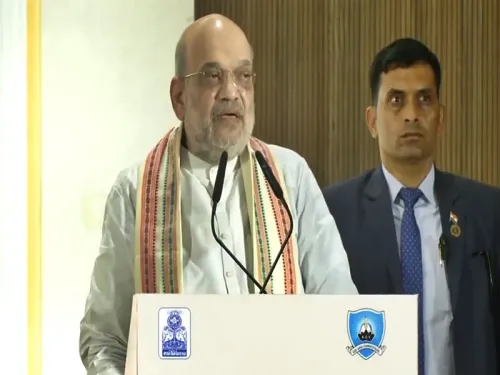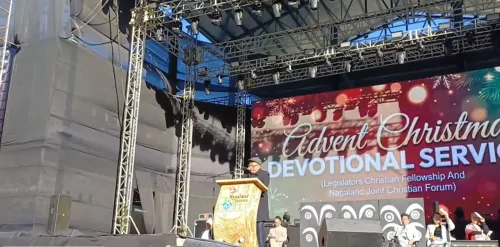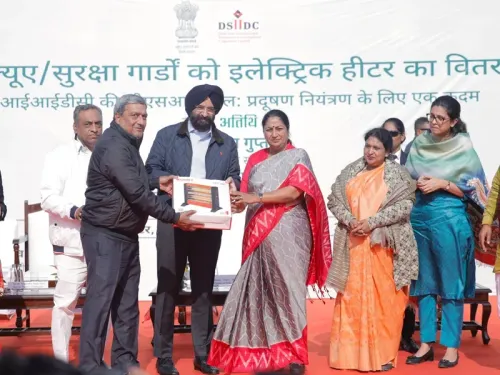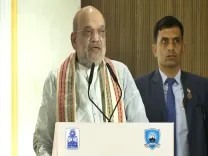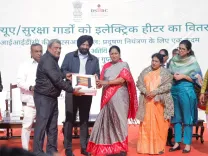Amit Malviya Discusses Waqf Bill Amendments

Synopsis
Key Takeaways
- Clause 3D protects ASI-monuments from Waqf regulations.
- Clause 3E safeguards tribal lands from being classified as Waqf property.
- The amendments aim to protect historical heritage.
- Tribal rights are emphasized in states like Jharkhand.
- Home Minister Amit Shah addresses misinformation regarding the bill.
New Delhi, April 3 (NationPress) BJP leader Amit Malviya has provided an in-depth analysis of the important changes in the Waqf Amendment Bill, focusing on significant amendments designed to protect historical monuments and the rights of tribal lands.
On the social media platform X, Malviya detailed the implications of these amendments.
“A vital addition in the bill, Clause 3D, specifies: Any declaration or notification issued under this Act or any prior Act regarding waqf properties shall be rendered void if such property was classified as a protected monument or protected area under the Ancient Monuments Preservation Act, 1904 or the Ancient Monuments and Archaeological Sites and Remains Act, 1958 at the time of such declaration or notification,” he stated on X.
Malviya elaborated that this means that ASI-protected monuments are now outside the Waqf’s jurisdiction.
He pointed out that the Archaeological Survey of India (ASI) serves solely as a custodian, implying that protected properties might not automatically be government assets.
“Another significant amendment, Clause 3E, states: 'Notwithstanding any provisions in this Act or any other law currently in effect, no land belonging to members of Scheduled Tribes under the Fifth or Sixth Schedule of the Constitution shall be classified as waqf property,” he mentioned.
Malviya stressed that this provision effectively safeguards tribal land from being classified as Waqf property, thereby protecting the interests of tribal communities and preventing land encroachment.
He noted that this has been a pressing issue in states such as Jharkhand and other regions with significant tribal populations.
“This is a monumental step in safeguarding Tribal rights, benefiting Bengal’s Tribals and many others,” Malviya remarked.
The changes in the Waqf Act have ignited discussions among political and social groups, with supporters asserting that they protect historical heritage and tribal communities.
Earlier, during a Lok Sabha session on Wednesday, Union Home Minister Amit Shah asserted that certain parties were deliberately spreading misinformation about the Waqf (Amendment) Bill to enhance their electoral appeal.
He claimed that the proposed legislation aligns with fulfilling the aspirations of RJD chief Lalu Prasad, which the opposition had previously neglected.
Shah explained that the new legislation might not have been necessary if the Waqf (Amendment) Act of 2013, passed by the Congress-led UPA II government, had not been rushed through just prior to the 2014 Lok Sabha elections.
At that time, Lalu Prasad, whose party had been part of the ruling coalition before withdrawing and later providing support, had raised concerns regarding the status of Waqf properties.
Quoting Lalu Prasad, HM Amit Shah stated: 'We endorse the amendment bill introduced by the government. I concur with the statements made by (BJP's) Shahnawaz Hussain and others. Most of the land has been seized, whether government-owned or not. Individuals within the Waqf Board have sold off all the prime land. In Patna, apartments have been constructed on properties meant for Dak Bungalow. There has been substantial misappropriation of such properties.'
The Home Minister also reiterated that the Waqf (Amendment) Bill, 2025, was not targeted at any specific religion and that misinformation was being propagated by the Congress and other opposition parties to manipulate public sentiment for electoral gain.



